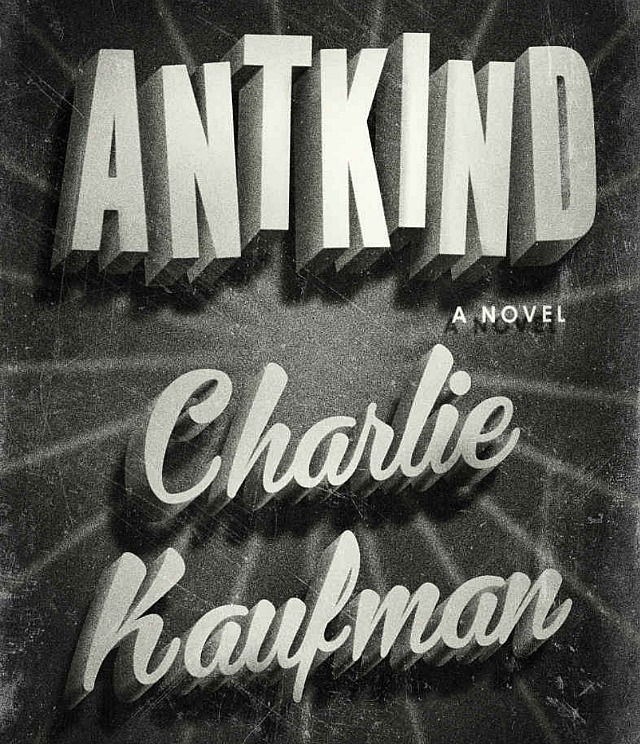I’m naturally interested in Charlie Kaufman‘s just-published Antkind. What blogaroo wouldn’t be? I’ve only read the opening chapter, but it appears to be a withering satire of a highly self-regarding film devotee slash journalist-author type. The title, which could be interpreted to mean “kind of like an ant”, seems to indicate Kaufman’s attitude about his middle-aged (late 40s?) protagonist.
He sounds like a cross between Humbert Humbert and a Jewish Gerald McBoingBoing. (It’s actually Rosenberg something-or-other.) He’s bald and proudly wears a big, Herman Melville-ish, Brillo-paddy Richard Brody beard as a badge of honor and exceptionalism. He wears “owlish wire-rim glasses” and has a “hawkish nose and sunken blackbird eyes.” And he has a fetching, significantly younger African American girlfriend with whom he has great sex…bullshit.

To go by the Amazon excerpt, the tone of the book is a kind of deep-burrowing insect absurdism. Or, you know, a kind of surrealist extremism that keeps the reader at arm’s length. Nothing is real, and nothing to get weirded out about because it’s Charlie Kaufman wandering through a hermit-termite world…a low-rentish, film-dweeb nether realm, half cave and half steel cage.
Descriptive excerpt: “Trapped in a self-imposed prison of aspirational victimhood and degeneratively inclusive language…while attempting to keep pace with an ever-fracturing culture of ‘likes’ and arbitrary denunciations that are simultaneously his bête noire and his raison d’être.”
HE commenter Jimmy Porter said this morning that Kaufman “gets effete film bloggers down to a tee.” The toenail-fungus kind, he means. We’ve only just met, but Rosenberg McBoingBoing has never owned a pair of suede Bruno Magli lace-ups, trust me. And he’s certainly no urban rumblehogger.
In the opening chapter Humbert Rosenberg McBoingBoing is driving through pitch-black darkness in rural Florida, heading toward St. Augustine. Every so often he notices a roadside fast-food joint with the lights on but zero customers. One of these operations is called Slammy’s. Any rural fast-food joint with an eccentric, clearly non-corporate name like Slammy’s is something to be savored if not cherished. If I saw an open-for-business Slammy’s in some out-of-the-way hamlet I would pull over without hesitation. I would order and sit on one of the outdoor benches and phone-surf. I would breathe it all in and smell the air and gaze at the stars.
Charlie’s protagonist pulls in, but only to get some paper towels and a cup of water to clean his windshield with. That’s a significant difference right there.
